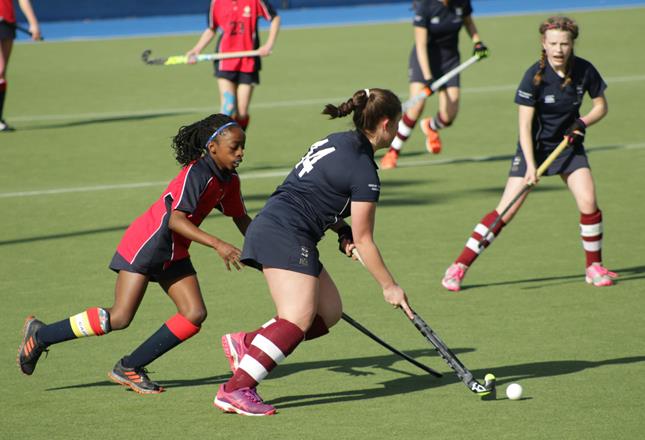
Over 1,400 community sport providers involved in the delivery of more than 75 sports and activities took part in the survey which focused primarily on voluntary clubs. Around four million people regularly access physical activity through such clubs in England alone.
The findings demonstrate an incredible resilience in the sector, with volunteers continuing to support their clubs across the lockdown period. However, a lack of income during this time has placed additional pressure on the financial reserves of our community organisations and the results show that grassroots clubs with greater ethnic diversity face the biggest challenges.
Respondents were asked to consider their position prior to the onset of the pandemic, how this has changed since restrictions were imposed, and the effects of this experience on their ability to restart activity once restrictions had been eased.
Participation
The findings showed that virtually all participation opportunities organised by community sport providers ceased during lockdown and that organisations responding to the survey lost an average of 60% of their members.
This figure is projected to recover to 75% of pre-pandemic levels once restrictions are removed, with clubs and other providers expecting to deliver 90% of their participation opportunities once restrictions are fully lifted.
This suggests that organisations believe that could deliver activity at, or close to, their pre-pandemic operating capacity.
Workforce
A priority which emerged from the study was the need to support the UK’s three million coaches, from elite down to grassroots.
Paid coaches were the individuals within the sport and physical activity workforce that suffered the most significant fall in numbers, dropping by 63% during the pandemic.
Activities projecting the most significant decreases in the number of paid coaching staff include Archery (45%), Athletics (38%) and Boxing (43%).
While the outlook in relation to paid coaches appears fragile, the picture surrounding volunteers is a lot more promising.
Volunteers in administrative and facility maintenance roles seem to have ‘stayed at the wheel’ to some extent during lockdown, with only one in four administrators inactive during the pandemic, and 98% predicted to return.
Overall, voluntary clubs expect to lose only 4% of their overall volunteer workforce, compared with 13% for companies and paid individuals.
While this offers encouragement that recovery will be swift, a projected decline in the number of volunteers at organisation’s disposal means that there are some signs existing volunteers will be under more strain.
Finances
Our responses showed that around one in three providers operate without any financial cushion. During the pandemic period, those providers with cash reserves saw them decline by 18%, while liabilities increased by an average of 20%.
To mitigate the impact of lockdown on participation levels, most providers have reduced expenditure in line with this decrease in activity, although the 41% reduction in expenditure was outpaced by a 51% drop in income. Due to the shutdown in provision, the sparsity of new funding opportunities also presented a challenge for generating income for grassroots clubs.
The study also shows that the impact of the lockdown on providers’ financial viability, while broadly negative, may be reversed if organisations are able to return to delivering income generating activities at the earliest opportunity, with the availability of facilities a priority in this area.
It should be noted that organisations with more ethnically diverse communities, who were already operating with low pre-pandemic reserves, an average of 17% of their annual income, have experienced a further decline in this area. A drop to just 10% suggests that they will be under additional stress as the restart begins and may require further assistance to safeguard their long-term financial sustainability.
Responding to the report, Sport and Recreation Alliance CEO, Lisa Wainwright said: “This research highlights how successfully our community clubs have coped in unprecedented times. The resilience, determination and passion shown is to be commended and this is why grassroots activity remains in a healthy position.
“As a sector, it is really important that we make being active the easy choice and one that is safe, enjoyable and beneficial to all.
“Any decline in the quantity or quality of coaching available is likely to have a negative impact on returning members and so it is crucial this is addressed to avoid a further decline in activity levels.
“The availability of facilities is also fundamental to the entire eco-system of delivery for sport and activity providers and is key to the restart process.
“We must make sure that facilities are opened as quickly and as widely as possible to encourage participants back and to allow our community organisations to start building their income once again and provide them with the financial sustainability to continue delivering their activity.
“This has taken on even greater significance following the latest Active Lives Adult Survey from Sport England which has shown a concerning drop in activity levels, with certain demographics harder hit than others.
“Community sport clubs are the lifeblood of cities, towns and village across the country and we must support them as the nation recovers, to allow everyone to take advantage of the incredible wellbeing benefits of sport and recreation.”
The Alliance will be working with our members to further analyse this data so that we can support the safe return of activity and make sure that community sport and recreation is protected in the immediacy and for the longer term.
This afternoon, the Chancellor delivered her Budget speech to Parliament, outlining decisions on tax and spending.
Read moreAhead of the Chancellor’s Budget statement on 26 November, we take a look a look at the key areas to be aware of and the work the Alliance has been doing lobbying on behalf of members.
Read moreGovernment has today formally launched a consultation on reforming the role of statutory consultees in the planning system. The consultation runs for eight weeks, closing on 13 January 2026.
Read moreJoining the Sport and Recreation Alliance is pretty simple, but worthwhile!
Register now